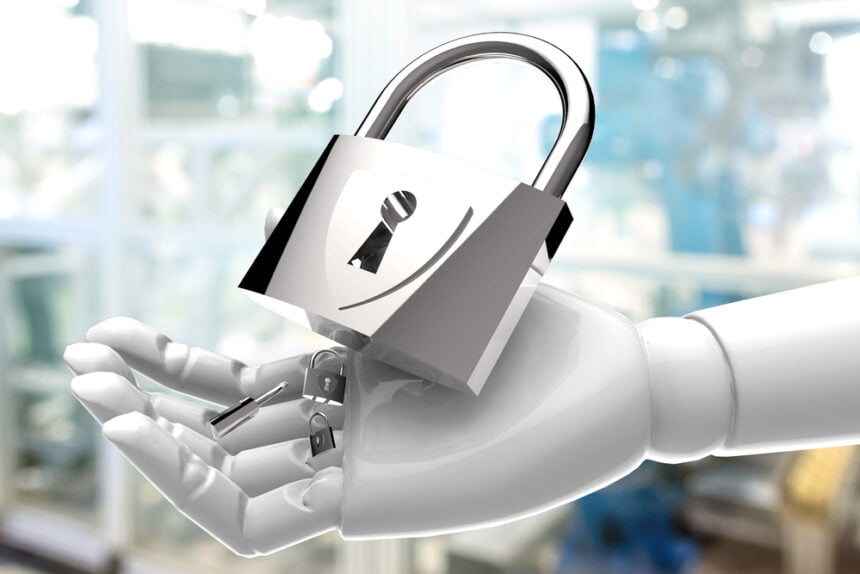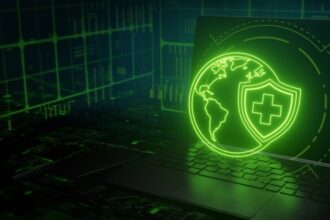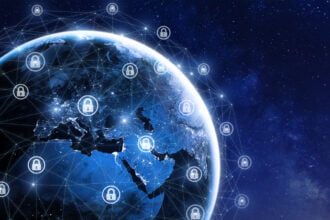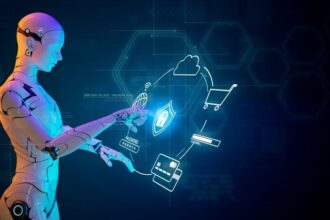Artificial intelligence is a form of technology that is drastically changing our lives. We have talked extensively about the benefits of using AI for marketing, gaming, financial analysis and many other applications. One of the most impactful ways that AI impacts our lives is by improving our cybersecurity technology.
Sridhar Muppidi, CTO of IBM Security, created a very insightful video about the benefits of AI in the field of cybersecurity. It highlights some of the most significant reasons that AI is changing the field of cybersecurity.
The Role of AI in Cybersecurity Technology
Cybersecurity is a very important part of modern-day life. It’s no exaggeration to say that without it, society would have problems functioning. It protects many things, from our phones and sensitive data to our nation’s security and economy. Cybersecurity is what stops cybercriminals from stealing your data, taking your money or your identity to make a profit, or take down a business.
It is threats like these that make cybercrime such a scary concept. Cybercriminals can choose to target anyone, from a famous, tech-savvy youth to a defenseless older woman who is making one of her first purchases online.
Fortunately, there are a number of ways that AI technology can help address cybersecurity risks. There are a lot of compelling reasons that many businesses are investing in AI technology.
It seems that the more vulnerable you are, the more likely you are to be targeted. This makes ignorance regarding cybersecurity and the methods hackers commonly use very dangerous, not only to your own livelihood but to everyone you’re connected to. The good news is that there are a lot of ways to mitigate these risks by using AI technology, such as with fraud scoring, automating the removal of rogue users and constant monitoring of internal resources.
This is why you need to not only know what cybersecurity is, but you also need to know how AI-driven cybersecurity protects against. Understanding the importance of systems such as xdr security and OPSEC (operational security) and how they benefit businesses can have a very healthy impact on the way you use your technology and the way you protect it. They typically rely on some of the most sophisticated AI algorithms to ward off cyber attacks.
However, the threat of cybercrime is dramatically evolving, so even with all of these precautionary measures, there is still a possibility of a cyber-attack. Even if the worst does occur, a cybersecurity team that is equipped with the latest AI technology can help with the recovery time after a data breach to stop other hackers from getting in and stealing data using the pathway that the other cybercriminal used. This can help your business back on its feet quickly and return to ‘business as usual’ as soon as possible.
What does cybersecurity protect us from? What are the threats that cybercriminals pose?
Cybersecurity protects us from a range of different attacks, especially when AI technology is used to fortify their defenses. Cyberattacks come in all shapes and sizes, but all of them are dangerous and can leave irreparable scars on a business’ reputations or someone’s finances. It protects us from malware or other malicious software from getting into our laptops via an encrypted link or download by using anti-malware programs.
These are in common use (there is probably one working on whatever device you are reading this on) and act as a wall between your computer’s software or your network and a virus. It stops the virus from getting in and stops your data from ending upin the wrong hands.It also protects from spyware and Trojans, which are types of malware that cybercriminals use for purposes like accessing our cameras to spy on us and collect footage to use as blackmail.
On a much wider scale, cybersecurity also protects us from threats against national security. Larger cybercriminals will often target local state governments, healthcare institutions such as hospitals, and the government. This is also known (probably for obvious reasons) as critical infrastructure security. They often have AI tools of their own, but cybersecurity professionals can usually thwart them by using predictive analytics and machine learning tools that can fight them off.
Much closer to home, cybercrime can also harm us on a far more personal and intimate level. This is generally done through social engineering methods, such as phishing. This helps hackers get sensitive information by posing as a brand or person the target trusts through sending encrypted links through scam emails. They may also try to get your bank details through scam calls which involve contacting the target and posing as a billing company.
What are the methods of protection that cybersecurity uses to keep us safe from these threats that cybercriminals pose?
As mentioned above, things such as anti-malware programs and business continuity procedures are common ways in which cybersecurity helps protect our technology from hackers. The latest malware protection tools rely on complex AI algorithms to work efficiently. However, there are other ways they protect against cybercriminals.
This can be through software called OPSEC, which is an abbreviation for operational security. This analyses data that is exiting the network that might be seen as a potential way to obtain sensitive data on someone who is using the network. This can be individual pieces of data or smaller snippets of information that could be grouped together to make it easier for a hacker to get into the system.
Cybersecurity protects your network’s security by making sure that no one without granted permissions can get into the networking software that you use, so they cannot see what is leaving or entering your devices via a network. This kind of infiltration can be a serious threat, especially if you’re purchasing something online, as then you have just given your bank card details to someone who has malicious intent without even realizing it.









